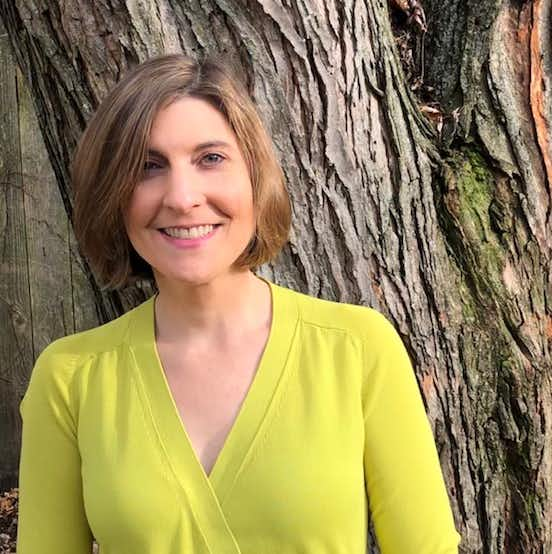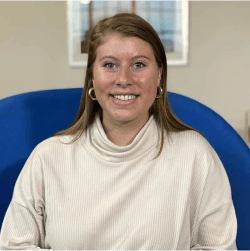
Psychology: Inside Diagnosis and Treatment
How has psychology revolutionized the relationship between behavior and mental health care? How do psychologists determine specific treatment plans? This course explores answers to these questions and enables you to develop a solid knowledge base of clinical psychology. Delve into various psychology theories and approaches, discover different mental health diagnoses, and learn the process of assessing and treating mental health issues. If you’re intrigued by the inner workings of psychology, this course is for you.
Program Dates
Choose the course length that works for you: 2-week and 4-week sessions
Eligibility
For students ages 13 and up
Individual Course Fees
$1,895
Discover the World of Psychology
Answer the Question: “What is Clinical Psychology?”
Understand the history of psychology, and evaluate the role of mental health in the individual and society. Differentiate the purpose and function of various mental health professions.
Examine the Range of Mental Health Disorders
Review the diagnostic system that is used to identify mental health disorders. Identify the range of disorders, like obsessive compulsive disorder (OCD) and schizophrenia, and what we know about them.
Explore the Assessment and Diagnosis Process
Determine how patients are referred for treatment and the intake process. Recognize different methods of clinical interviewing, and identify how assessment leads to treatment choices.
Delve Into Cognitive Behavioral Therapy (CBT)
Identify the fundamental premise underlying Cognitive Behavior Therapy. Define automatic thoughts, intermediate beliefs, and core beliefs. Evaluate basic behavioral and cognitive techniques for intervention and treatment.
Review Treatment Methods Beyond CBT
Highlight methods beyond CBT, like psychodynamic, family systems, and humanistic therapies. Examine cultural norms' impact on therapy and adaptations and how methods should vary according to individual needs.
Hear From Experts in the Field
Lessons feature an array of psychology professionals like psychiatrists, clinical psychologists, social workers, family therapists, and more.

How You Will Benefit
- Be able to evaluate the role of mental health in the individual and society.
- Understand the diagnostic system that is used to identify mental health disorders.
- Identify the various types of therapy and when one is more valuable than another.
- Complete a Final Capstone Project to demonstrate what you’ve learned.
- Earn a Certificate of Completion from Northwestern University.
Three Learning Advantages Designed for You
Final Capstone Project
The online course culminates in a Final Capstone Project that allows you to:
- Delve into a patient case study from referral to treatment plan.
- Understand the reason for the referral, determine the possible mental health issue, and explore potential treatments to support patient care.
Mentoring
You’ll receive guidance from a mentor who can support you and deepen your learning experience. You can expect:
- Encouragement and direction on all assignments.
- Inspiration, motivation, and confidence to help you excel in your studies.
- Brainstorming and ideation to help you prepare for your Final Capstone Project.
Flexible Learning
- 100% online learning that works with your schedule.
- Flexible learning format through video lessons. Tune in anytime that works for you.
- 20-30 hours of total instruction and course work, including engaging multimedia, simulations, and curated assignments for which you will receive guidance and support from mentors.
Apply Now for the Next Available Course
All course options have the same educational content, learning materials, and number of assignments. We are offering a condensed version of the course in order to accommodate students’ individual schedules.
Hear From Northwestern University
Course Designed by Northwestern Faculty

Alissa Levy Chung, PhD
Associate Professor of Instruction; Associate Director of Clinical Training
Professor Chung, a licensed clinical and developmental psychologist, is an award-winning teacher as a member of the adjunct faculty in the School of Education and Social Policy at Northwestern, teaching courses in developmental and clinical psychology. Since 2001, she has been a licensed clinical psychologist in private practice, working with children, adolescents, adults, and families.

How To Apply:
It’s easy. No transcripts or letters of recommendation are required. Just provide some basic information and tell us why you wish to take this program.
Note: Please submit all application materials in English.
Begin the guided application process. It should take only a few minutes of your time to answer the questions.
Want to Know More?
Sign up for more information and we’ll be in touch.
Admissions
Our application process is easy. You can expect a prompt decision.
Frequently Asked Questions
How will you be graded? What are assignments like? How much time do you have to turn around a project? When do you find out if you're admitted? Find answers to your questions here.
Scholarships
We offer need-based scholarships for participating students who exhibit high potential and an inability to pay the full tuition.
- If you haven’t applied to the program, apply here. After submitting your application, click “Apply for a need-based scholarship” on the confirmation page to request a scholarship.
- If you’ve already applied to the program, sign in to your Profile to check your scholarship status. If we don’t have a scholarship request on file, click “Apply for a need-based scholarship” to request a scholarship.
